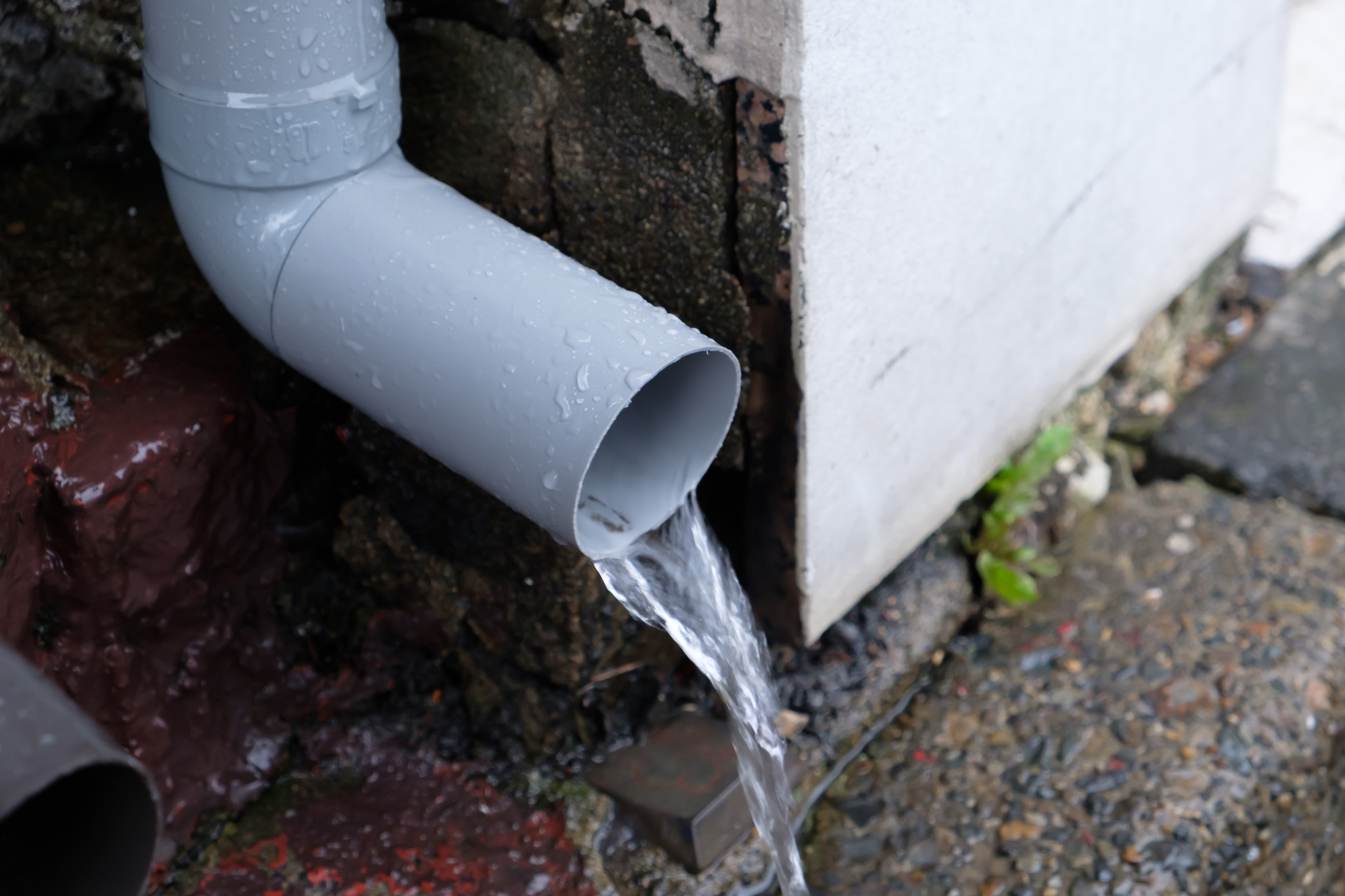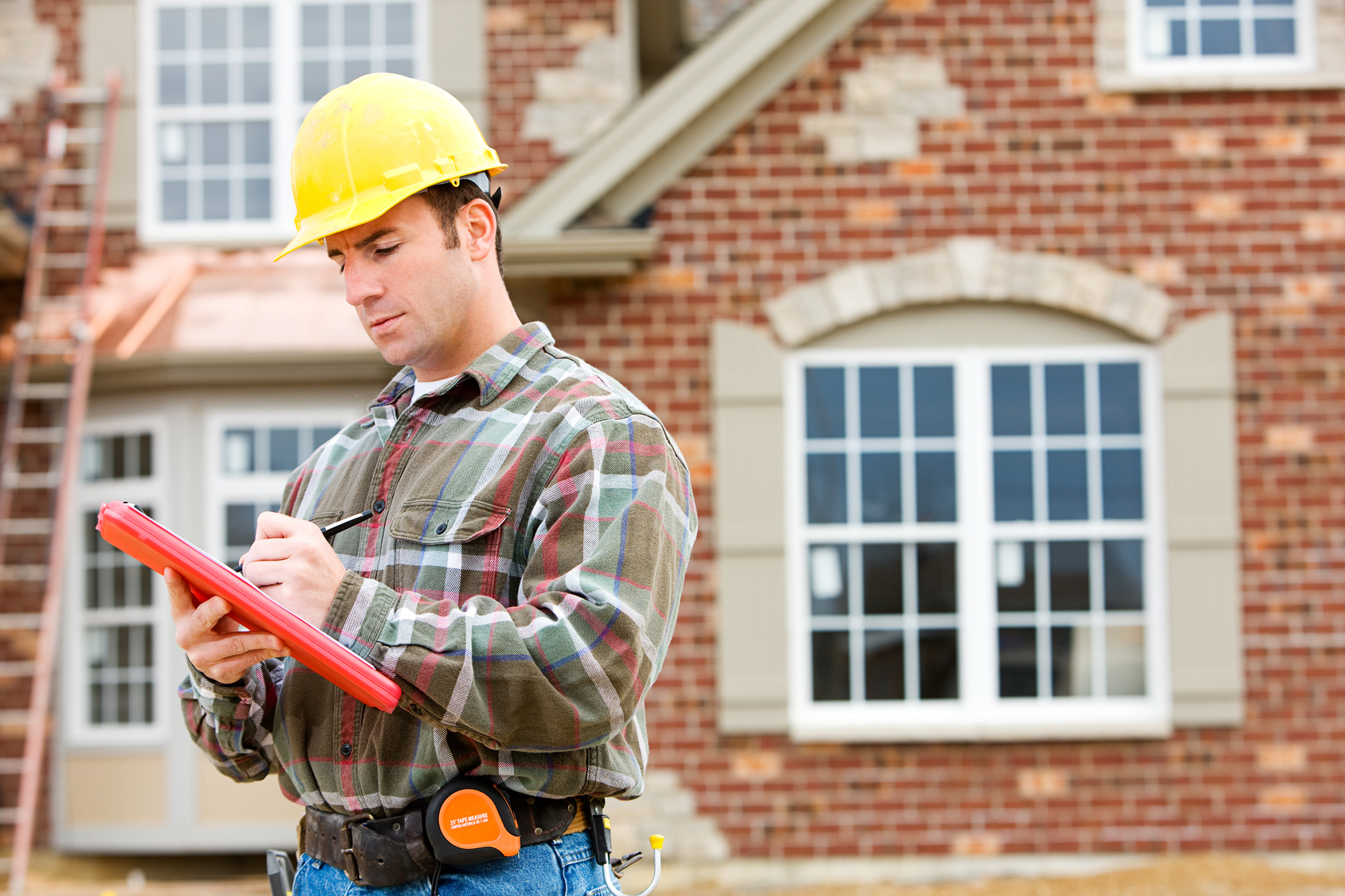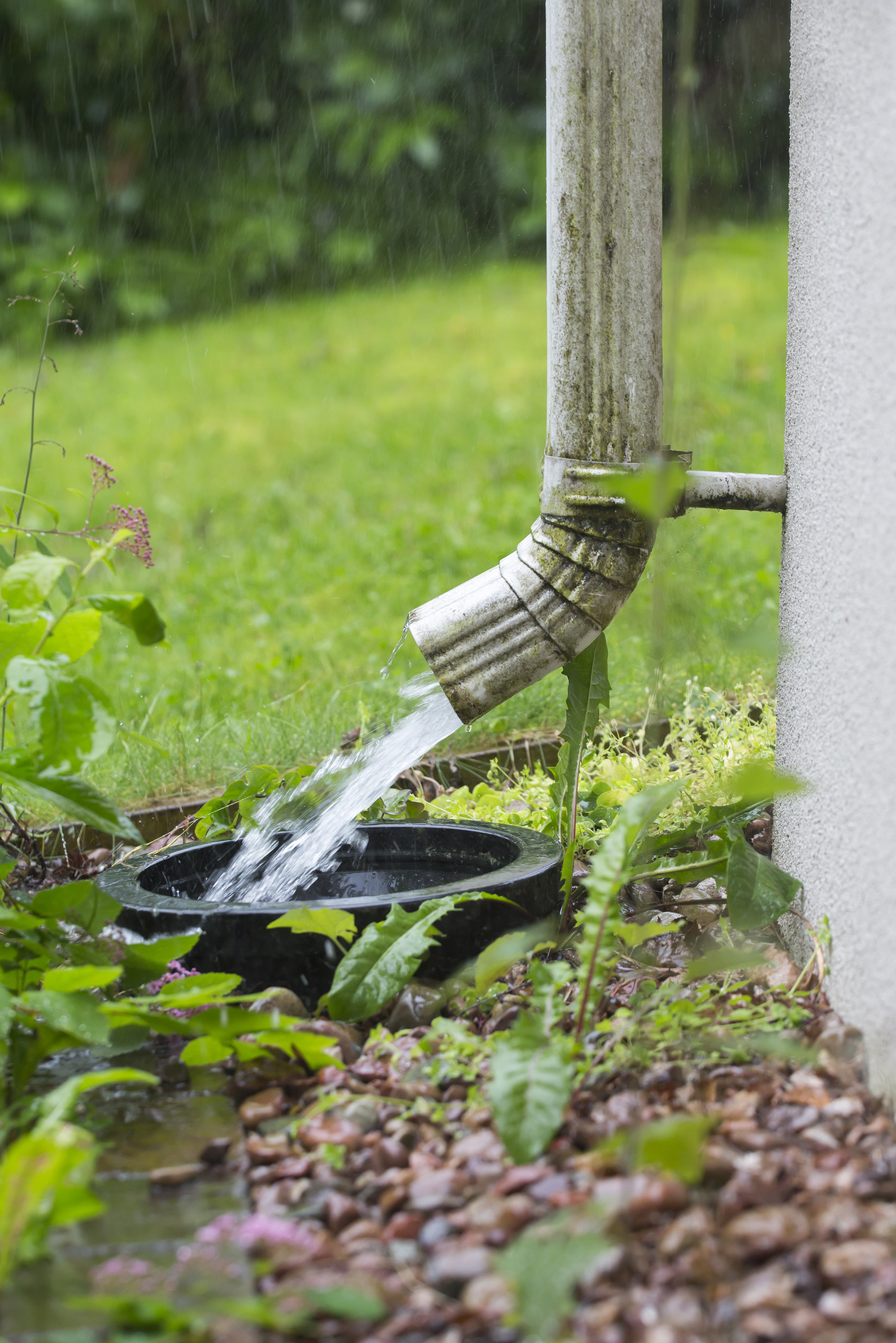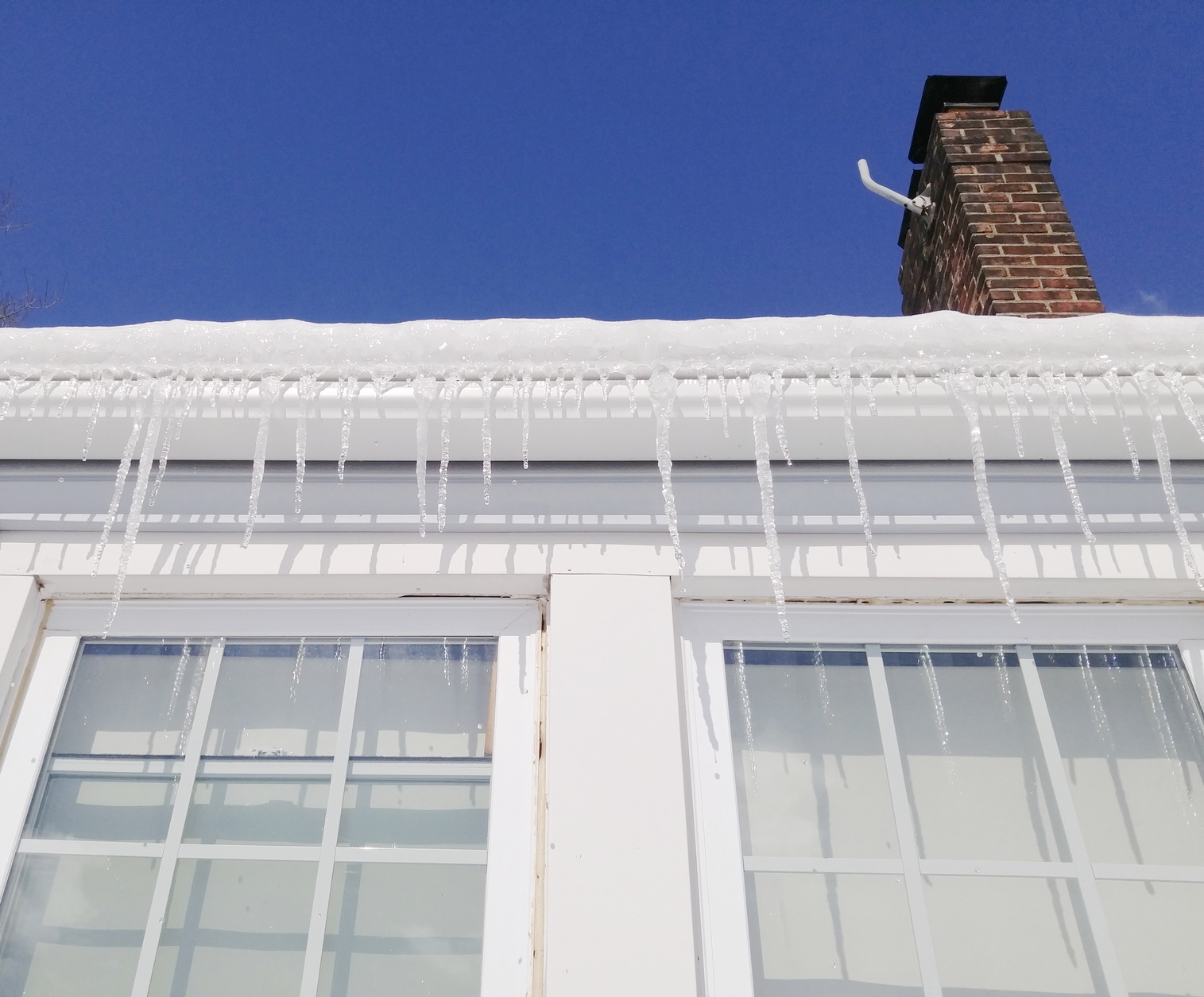April Showers and a Need for Proper Yard Drainage
They say that April showers bring May flowers. But if your yard has poor water drainage, nature might gift you with dead grass, foundation issues, and an increased risk of disease, instead. The value of proper yard drainage cannot be overstated. Without it, we open our properties up to unsightly damage, health issues, and problems which could impact the stability of the home itself.
Proper yard drainage affects more than just the aesthetic beauty of a property. Problems related to drainage can follow you inside the home and beyond. When it comes to the health and stability of your family and home, the issue becomes one of utmost importance.
But what is the negative impact that poor drainage can have on your home? How can it impact your life outside the house? What can you do to combat these issues?
Dead Grass
Plants need water to grow and thrive. During periods of drought, we’ve all seen our lawns turn yellow from lack of moisture. Much like a flower will wilt and die if deprived of water, so too will grass. But overwatering plant life can be just as hazardous as deprivation. Improper yard drainage will cause rainwater to pool in certain areas, drowning and killing the grass beneath it.
Not only is this unsightly, but lawnmowers cannot roll over these spots, due to the risk of damage. This makes the simple process of mowing the grass a complicated procedure. What’s more, this issue has the ability to follow you back inside the house as well. A simple walk through the yard will lead to muddy shoes, which can then track filth inside. Pets can also bring mud in with them, and they won’t wipe their feet off before bounding onto the carpet.
Attracting Dangerous Insects
Standing water is a breeding ground for dangerous and irritating insect life. Gnats can be common, but they pose no actual threat to our lives, save for being annoying and ruining cookouts. The danger comes in the form of mosquitoes. While mosquitoes primarily reside in tall grass and weeds, they reproduce in areas of standing water.
That means hundreds of newborn baby mosquitoes will make your yard the first home they’ve ever known and begin the process of chowing down on the blood of you, your family, your friends, and your pets. But mosquitoes do more than just cause itchy bites. These bloodthirsty buggers are noted carriers of diseases, some of them deadly. A few of the more hazardous ailments carried in the saliva of mosquitoes include malaria, yellow fever, and West Nile virus.
Lawn Fungus
 Did you know that your lawn can get sick? It’s true, and the risk of a lawn fungus spreading throughout your property increases exponentially when overwatering occurs. Grass Fungal Disease can present in a number of ways, some of which include: thin patches of discolored grass, spotted blades, powdery or threadlike coatings around grass blades, and darkened slimy looking grass.
Did you know that your lawn can get sick? It’s true, and the risk of a lawn fungus spreading throughout your property increases exponentially when overwatering occurs. Grass Fungal Disease can present in a number of ways, some of which include: thin patches of discolored grass, spotted blades, powdery or threadlike coatings around grass blades, and darkened slimy looking grass.
Fungal disease can effectively kill your lawn, spreading to other areas and ruining the entire look of your property. Once a fungal disease infects your grass, it can be costly and difficult to eliminate. The best preventative measure one could take in the fight against Grass Fungal Disease would be to have proper drainage throughout the property, ensuring that water does not pool around specific areas and overwatering does not occur.
Basement Flooding
If too much water gathers within your yard and has nowhere to go, there’s a chance that moisture might make its way inside. Basements and crawlspaces can be flooded, which can cause long-lasting damage to your home. Property stored within those areas can be destroyed by the incoming water, but perhaps the greatest danger of internal flooding comes in the form of continued air quality.
Flooding can cause mold growth which, when inhaled, leads to respiratory issues. This is one of the many ways that protecting the exterior of your home can help preserve its interior and your overall quality of life.
Ground Integrity
Flooding causes harmful shifts in the ground, which can create foundational damage to your house. Drainage issues can cause oversaturation around your home. This causes the soil to expand and, in turn, press against the foundation. This pressure can be so great that it causes cracks to form, severely affecting the home’s structure and necessitating costly repairs.
Foundation cracks that are more than 1/16 of an inch need to be repaired immediately. If left untreated, foundational cracks can lead to increased water damage, further exacerbated by continued drainage issues and structural hazards. Cracks can also elongate and deepen if not repaired, causing the concrete to fracture and crumble.
What Can You Do?
If your home has drainage issues, are you doomed to suffer at the whims of nature forever? Of course not. There are a number of ways in which you can help improve your home’s drainage.
If landscaping close to your home is causing an issue in the form of a natural basin, that’s a simple matter to fix. Extending the house’s downspout so that runoff flows past the landscaping usually solves this issue.
Installing trench and channel drains can help contain and direct the flow of water. This helps prevent inconvenient pooling. Also, it’s important to allow the drainage runoff to channel itself back into the earth. Once there, natural processes can filter the gathered liquid before it flows into a body of water, like a lake or river.
In-ground yard drainage systems can also help to correct naturally problematic draining in an area. Installing the system just under the surface ensures that bulky eyesore pipes remain out of sight while they perform this vital task.
Mikula Contracting has been solving yard drainage issues in New Jersey for 72 years. Our residential drainage services solve issues related to street water, lawn water, stormwater damage, and trench drain systems. Our comprehensive service also includes troubleshooting. We will identify your issues and then solve it with a winning combination of honesty and experience. Mikula Contracting provides drainage, seepage pit installation, and tank removals for homes in Northern New Jersey. We are proud to service Essex, Hudson, Bergen, Passaic, Morris, and Union counties.
For more information on Mikula Contracting’s residential draining services, visit us online, or contact us today for a fast quote.
10 Important Things to be Aware of Before you Buy a Home
So you are ready to purchase a new home. Congratulations. Whether you are a first time buyer or have been around the block a few times, there are several key facts you need to consider before signing on that dotted line.
When you purchase a new home, you probably think hard about things like whether it has enough space for your entertaining needs or what the neighbors are like. However, there are also bigger issues that must be included in your decision making process.
1. The pros and cons of buying versus renting in your area.
There are numerous benefits and headaches with each choice. Sometimes, based on the market and the economy, it’s better to wait. You also need to think about the return on investment and how much home you can afford. Also, if your potential mortgage would be more expensive than what you pay in rent, you may want to recalculate your finances and save for a while longer. The area where you live can also be a factor, as home prices might be vastly different from one area to the next. How long you plan to stay in the home could also contribute to your decision.
2. How the mortgage process works.
Where will you get funding? How will the amount of your down payment affect your mortgage? Buying a home can feel like you are signing your life away, especially if you’ve never done it before. Many different terms are thrown at you and lots of people with various titles will come along and offer to help you. This is on top of all the legal and real estate issues you must contend with. Know your rights and get the best advice before embarking on this confusing process.
3. Learn as much as possible about the home and don’t be afraid to walk away.
In the search for your dream home, you may find a house that you really love. When that happens, you might feel like you will do anything to get it. Even in a house that seems perfect on the surface, there could be issues lurking underneath. Basements, foundations and drainage issues must be thoroughly checked. If possible, get an inspection after it rains so you can really see what’s going on. Among other questions you may want to ask include how long the home has been on the market, typical cost of utilities and whether there is a homeowner’s association. You don’t want to purchase someone else’s headaches so if you find something that’s not right, walk away.
4. You might have to make some difficult choices.
If you are selling your current home and buying another, one may happen faster than the other. This could mean finding temporary housing to make room for the new owner or settling on a home that is less than ideal. Also, there might be repairs that have to be made on your new home. For example, you could face issues with sewer lines or it may require an oil tank or pool removal. These might be items thatthe seller won’t pay for. Therefore, you would have to decide if it’s a project you want to take on as a DIY or to hire a professional contracting service.
5. Keep all money matters in mind at all times.
The decision to buy a new home is exciting. However, don’t get so caught up in the thrill that you forget to get your finances in order. Down payments, credit scores and closing costs are all factors that will affect what you pay and how much you need to save. Experts recommend buying less house than you can afford to avoid becoming house poor. Also, it’s best to get pre-approved before you go house shopping.
6. Beware of money pits.
You may remember the 1980s Tom Hanks/Shelley Long film called The Money Pit, where a couple purchases a huge home for a ridiculously low price and then discover why it was so cheap. Everything that can go wrong with a house does, in hilarious fashion. While the movie was funny, it’s no laughing matter when this happens to you in real life. Some of the items you should look out for include a roof that needs replacement, an old electrical system, cracks in the foundation and water stains on the ceiling.
7. Don’t rush your decision.
Your home is likely the most expensive purchase you will ever make. It’s vital to take your time. Shop around for the best mortgage rates and homeowner’s insurance. Don’t let anyone pressure you into making an immediate decision.
8. Use an agent.
Some people believe that real estate agents are not worth the money and they can handle everything on their own. The truth is that agents understand the process better than you. Make sure you choose an agent accustomed to dealing with clients in your area and income bracket. A buyer’s agent will answer only to you so he will negotiate to get you the best deal.
9. Overlook the small stuff.
Don’t let little things like paint colors in the bathroom or light fixtures in the kitchen sway your decision. It’s unlikely that the seller will match your exact tastes and choose the same cosmetic features that you would. Instead, look at things like the flow of the house, the size of the rooms and that it has enough outdoor space to fit your lifestyle.
10. Think long term.
Everything about your new home will not always be picture-perfect. Whether it’s something that goes wrong or remodeling projects to make it better fit your current lifestyle, eventually, all homes require some amount of work. This is easier when you have the right contractors already lined up. Look for companies with extensive experience and the proper certifications and licenses.
For demolition, disposal, drainage, excavation and trucking and material delivery, you can trust Mikula Contracting. We handle ground, land and backyard drainage as well as rainwater and standing water drainage and surface drainage systems. We service Essex, Passaic, Hudson, Bergen, Union and Morris counties. Call today for a fast quote.
The Benefits of Installing Drainage Around Your Home
The phrase “putting your house in order” generally describes arranging your affairs and solving your problems. Taken literally, it means setting up your home the way you want it and making sure all systems are working properly. The drainage around your home is a key part of the process.
It has been said time and again that your home is your castle. However, that castle won’t be too comfortable if it leaks or the grounds are constantly soggy. Installing drainage around your home can protect your investment and improve water maintenance.
Why installing drainage around your home is important
-
Maintain a healthy landscape
If you have stagnant water that pools in your yard or garden, it can damage your grass, trees and flowers. Plant life will die if underwater for too long. There is also the possibility for vermin and insect manifestation, which can breed diseases and bacteria. Excess moisture is also like a welcome mat for termites. In addition, soil erosion, dry patches and puddles made your outdoor space look unattractive.
-
Protect your foundation
When your legs are not strong and healthy, your body is weak and subject to falls. Without a solid foundation, your home cannot stand. It’s the most important part of your home because everything else sits on top of it. Unfortunately, improper drainage can put it at risk. If storm water is not diverted correctly or you experience other drainage problems, your foundation may be destabilized. Water that seeps in at the top of your foundation can result in a wet sill plate, which will send all that moisture upwards to your floors and walls. This could lead to leaks, wood rot, mildew, termites and other insects. In the event that water gets into your basement, it could create a standing water problem, and this affects air quality, humidity and the development of mold. Fixing your drainage issues before the freeze thaw cycle is critical.
-
Make better use of the water on your property
Snow and rainwater will fall. There’s no changing that. What can change is how you think about it and use it. Conservation can play an important role in your overall outdoor space. You can collect it for watering plants and grass, creating a birdbath or, if your drainage system also filters the water, you can use it for drinking.
-
Safety
Pooling or puddling water on your property is not only a health hazard; it can be dangerous as well. Icy patches that form during freezing temperatures can cause treacherous conditions. If ice pools on your sidewalk and someone falls and get hurt, you will be in danger of lawsuits and other penalties.
-
Cleanliness
Don’t you just hate it when family and visitors track mud onto your floors and carpet? Puddles plus dirt equal disaster for your floors. Keeping excess water away will help to alleviate the problem.
-
Control erosion
Erosion typically happens slowly, over time, washing away the topsoil in your yard. Before you know it, you will have excessively wet, muddy or flooded areas. While you may not be able to make your yard level, the right drainage solution can help you manage how the water flows on it.
-
Prevent issues with neighbors or town
When you have a disproportionate amount of water flowing through your property, you just want it gone. Unfortunately, you can’t just direct it into the street or onto neighboring property. This will create bigger problems and could even be illegal in some circumstances, leading to strained relationships or even fines from the city.
Options for drainage improvement around your home
Check downspouts
Sometimes the problem could simply be how rainwater is directed. Try to discover where excess water is coming from before taking drastic action. The issue could be a misdirected downspout or a landscaping addition underneath that is causing water to pool. If that’s the case, a sump pump or a downspout extension might solve the problem.
Map out high and low spots on your property
Water can only flow downhill. It’s vital to be mindful of this as you plan landscaping strategies. If your house sits on a hill or excess water is unavoidable, you may want to use more creative measures, like building a rain garden filled with flowers that thrive on lots of water or a creek bed.
Install an underground drain pipe
This represents one of the best ways to handle water in low spots. It involves digging a trench and then using a plastic basin to catch the water and send it through a PVC drainpipe.
Hire a residential or commercial drain contractor to install an in-ground system
Do it yourself projects might be okay if you really know what you’re doing but in many cases, these may do more harm than good and you could end up impeding drainage rather than fixing it. Other times, simple remedies just aren’t enough to handle serious, recurring drainage problems.
If the drainage issues in your yard cause you headaches year after year, it might be time for a more permanent solution. You can choose a long-term resolution that will take care of your drainage hassles forever. While this does require lots of digging and a bit of disruption, but it will resolve your drainage concerns once and for all. You will save money in the long run and gain peace of mind that comes from knowing the problem won’t come back.
Make sure the company you choose is properly licensed and holds the right type of insurance. They should also be customer friendly and willing to explain all aspects of the drainage solution process.
Troubleshooting drainage issues takes experience. Mikula Contracting handles ground, land and backyard drainage as well as rainwater and standing water drainage and surface drainage systems. We will evaluate your drainage situation and create a customized plan that is right for you. We service Essex, Passaic, Hudson, Bergen, Union and Morris counties. Call today for a fast quote so you can be ready for winter tomorrow.
Preparing Drainage for Winter: What's Important to Know
Preparing Drainage for Winter
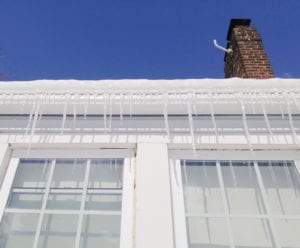
Benjamin Franklin said “By failing to prepare you are preparing to fail.” This quote stands the test of time because it’s appropriate for almost everything in life. Whether its major events like building a home or smaller matters like preparing drainage for winter, being prepared is fundamental.
We know to prepare for tests, job interviews and vacations. However, many lesser but important tasks, like preparing drainage for winter, tend to fall through the cracks. Learn more about the significance of this vital undertaking to avoid being caught off guard this winter.
Why preparing drainage for winter is essential
For most of us, cold weather means the beauty of a fresh snowfall, the opportunity to curl up in cozy blankets and an end to allergy suffering. Nevertheless, winter can wreak havoc on the outside of our homes and business properties. Things like sprinkler systems, outside faucets, gutters and drain pipes are especially susceptible due to the dangerous mixture of water and freezing temperatures.
We use water in our homes and businesses every day. Your water and plumbing systems consist of the most advanced, complicated and expensive aspects of your property. Therefore, it’s imperative to protect it.
When water freezes, it expands. This has an effect on whatever the water is in, including pipes and drains. You must take special care to protect any pipes or drains that may be exposed to the elements, even those in your garage or attic. This doesn’t have to be difficult, especially if you have the right commercial and residential drainage company to help you.
Anytime temperatures dip below 30 degrees, you are at risk for distress. Even if the frozen pipe or drain is located outside, the water damage will typically occur inside your home or business. When this happens, you may face the consequences of hundreds of gallons of water flow where it’s not supposed to go and the resulting financial costs.
It only takes one freeze event to cause a problem. Prolonged freezing temperatures and the accompanying wind chill that is standard for the weather in northern New Jersey often cause the soil to freeze around your pipes and drainage systems. You might not even be aware of the impairment until the following spring.
A lack of preparation before the winter temperatures hit can lead to disaster. Pipes can crack, burst or leak, causing damage to your property and expensive headaches. Taking steps now to guard against such trouble can save you time and stress.
How preparing drainage for winter works
Drain water from outside pipes – for many water-based appliances, draining is necessary. This includes hoses, faucets and taps. For hoses, you may want to store them in a warmer area to prevent damage and cracking. Some people think antifreeze is the answer but this is not always a wise choice. The chemicals could damage pipe lines and it’s not environmentally safe.
The procedure for draining your pipes is not always easy. Numerous steps add up to a complicated process. This may include attaching hoses and draining water outdoors or into a sump-pit, opening faucets and blowing out the water and flushing out the lines. If you don’t have the time or you’re not sure you can do it correctly, it’s better to call in a professional drainage company.
Insulate – there may be some pipes that you cannot drain for the winter because they are still in use. In this case, insulation provides the best protection. As an added benefit, it may also reduce your energy costs. Most home improvement or hardware stores sell circular insulation products. You simply wrap this around any kind of piping. You can also use heat tape or cable. Now is the time to check around the outside of your home for exposed piping and insulate it before freezing temperatures hit.
Repair any leaks – perform a visual examination while the pipes are still running and before the temperature drops below freezing. This is an ideal way to discover leaks on your property. If there are leaks, you may be able to patch them yourself using one of the DIY patch kits on the market. However, if the pipe leak is from your heating system or main water supply, it’s best to consult a professional.
Keep the heat on – some people are afraid of higher heating bills if they keep heat flowing around pipes during winter months but actually, the opposite is true. You will spend less if you keep your heat at a steady temperature. Rather than with the stop-start method of letting everything get cold and then cranking up the heat over and over to get it warm again.
Look for gaps and air flow – sometimes, there is space between a pipe or drain and the wall where it enters your home or business. This can cause cold air to get in and freeze the pipes. You can avoid this by using wood or plastic insulation. Do not use this method for vents connected to your heating system, though.
Make sure drain grates are clear – this is perhaps the easiest thing you can do to improve air flow during the winter. Remove leaves, dirt and debris from all outside grates to avoid freezing and keep the drains from becoming blocked.
Get protection – an ideal way to keep out dirt and debris is to purchase a drain protector. They make these protectors out of a freeze-resistant plastic material designed to withstand the elements.
Hire a residential or commercial drain contractor – make sure the company you choose is properly licensed and holds the right type of insurance. They should also be customer friendly and willing to explain all aspects of the drainage solution process.
Troubleshooting drainage issues takes experience. Mikula Contracting handles ground, land and backyard drainage as well as rainwater and standing water drainage and surface drainage systems. We service Essex, Passaic, Hudson, Bergen, Union and Morris counties. Call today for a fast quote so you can be ready for winter tomorrow.
